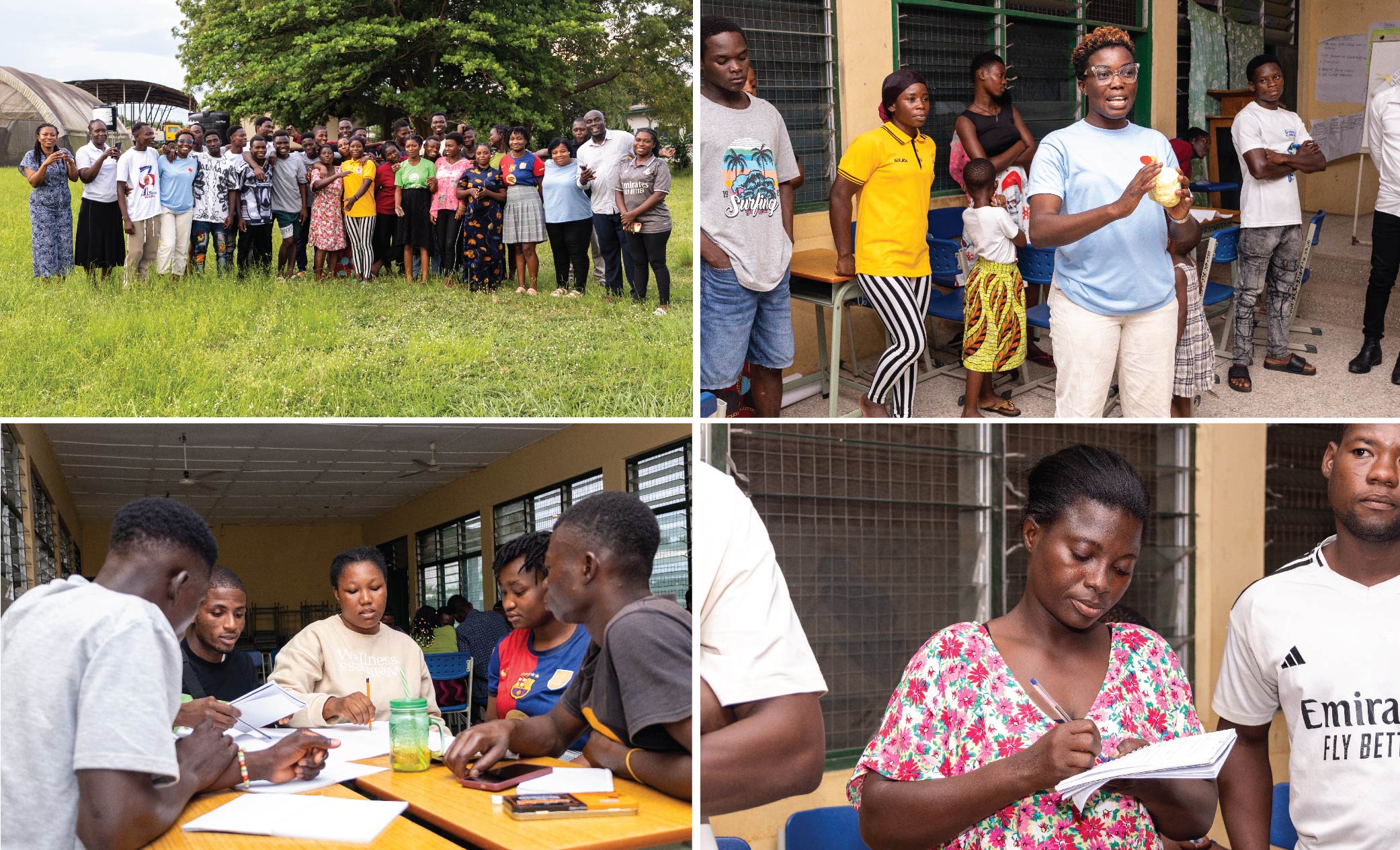The KNUST Nutrition and Sustainable Agri-food Collaborative, in partnership with the Mastercard Foundation (Nkabom Collaborative), has stepped down its transformative Trainer of Trainers (ToT) programme to the Adidome Farm Institute in the Volta Region.
The 10-day session brought together 30 aspiring agripreneurs, equipping them with the knowledge and practical skills to foster innovation, apply design thinking, and create sustainable solutions across Ghana’s agricultural value chain.
The initiative is part of a wider drive to cultivate a new wave of young innovators capable of transforming classroom lessons into thriving, market-ready enterprises that boost food security and create jobs across the nation.
Participants have described the training as a turning point in how they perceive agriculture, emphasising its practical and interactive approach.
Gbloe Wilson Yao, a participant, said the training had redefined his understanding of problem-solving in agribusiness.
“The training organised by Nkabom Collaborative is a very good one. I’ve attended many training programmes, but this one is very impactful,” he said.
He added that the training had shaped his ability to develop viable agribusiness ideas that address real community needs.
“We have been taught how to use a problem tree to identify the root causes of issues and their effects on society and as an entrepreneur, this will help me to solve problems sustainably without them resurfacing,” he stated.
For Tofah Benedicta Makafui, the sessions has been an eye-opener that challenged her to innovate and create value-added products from local resources.
“Through this training, I’ve learned to think outside the box,” she said.
She further expressed that the training had inspired her to venture into food processing by setting up a company that would focus on producing tom brown using soybeans, tiger nuts, and dates as a natural sweetener to help reduce sugar-related health issues such as diabetes.
“My goal is to build a processing company that adds value to local produce and creates employment for others in my community,” she emphasised.
Similarly, Priscilla Ama Afenyo highlighted how the hands-on training has strengthened her resolve to pursue agribusiness rather than rely on government employment.
“The training has broadened my understanding of agrifood business and how to be creative and innovative,” she explained.
She explained that the training had inspired her to venture into tomato processing as a way of addressing post-harvest losses in the agricultural sector.
She believed that the knowledge gained through the Nkabom Collaborative training has positioned her to transform her ideas into tangible outcomes.
“I believe the Nkabom Project has shaped me to making that dream a reality,” she said.


















